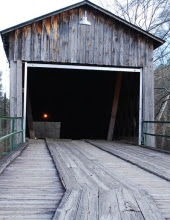School loomed when I first opened the August-October issue of Forward Day by Day, as I prepared with mounting anxiety for unprecedented classroom conditions. I clung to a routine that included morning worship from the Episcopal Book of Common Prayer. That includes reading scriptures appointed for the day with a little homily from Forward.
More confident now -- though I don't manage to get more than a day ahead in planning the details for hybrid in-class/on-line classes -- I still do no work before I've started the coffee, fed Brandy, and enacted morning prayer.
This issue's most striking readings coalesced around a couple of large themes. August's meditations were by Beth Haun, those of September were by Jason Sierra, and Shirin McArthur wrote for October.
Violence in Scripture
Haun takes on Judges 5.19-31, one of those passages that make it hard to say,
thanks be to God. "Jael assassinates Sisera in what may be the most gruesome act depicted in the Bible, and Deborah and Barak are singing her praises." She finds that all such Biblical stories are "bound by awe and gratitude." She challenges her reader to think what "wonderful deed" God has done in their life recently. It made me take note how, that week, I was grateful for input from colleagues David and Mary Ann for ideas that gave me a breakthrough in my planning.
Haun also takes on Psalms 21.11, one of many passages when a Psalmist goes off into cursing his enemies. She writes, "The wrath of God sounds terrible -- until we have an enemy in our crosshairs." Recalling that Jesus tells us instead to love our enemies, turn the other cheek, go the extra mile, and never judge, she sighs, "No one ever said following Jesus would be easy."
Reflecting on Paul's saying, "Do not be overcome by evil, but overcome evil with good" (Romans 12.21), Haun offers a vision of just how to do that, especially when the consequences of actions can be a mixture of good and bad. Think of evil as "the absence of God," and you no longer have to overcome evil with argument, but "only to announce God's presence." I like to imagine that saying "God is here, now" staves off evil the way a crucifix repels Dracula. Haun asks us, "How will you announce God's presence in your next difficult moment?"
The contrast between gentle Jesus and a rigid Psalmist comes up again when Sierra writes about the Psalmist's boast that he follows a "blameless course" (Psalm 101.2). Sierra observes that the Bible's teaching so much through narrative means that "no directive ... stands untroubled or unquestioned." Even the words of Jesus "cross each other" across the Gospels. Still, there's a path with "signposts," some well within the path and others on the edge.
Dust and Ashes: Job and Sirach
The book of Job is so rich in itself that
Forward had little to add.
There is no umpire between us Job complains to God (Job 9). He asks God,
Can you see as a man sees? anticipating the Incarnation (Job 10).
If only you would be silent, Job says to his nosy friends,
that would be your wisdom (Job 13). On that, Jason Sierra comments that , rather than try to speak for God, "silence is sometimes the better medicine, my presence the only gospel I need to share." The line
A mortal...flees like a shadow and does not last (Job 14) corrects Sierra when he feels important; but he also asserts "the story of which we are a part matters -- even our shadows lend movement and life to the forward march of a spectacular universe." The fourth "friend," young Elihu (evidently a late addition to the book) imagines God's sending a "mediator" to "ransom" us from our suffering (Job 32), a miniature theology of salvation, according to the Oxford Study Bible. Noting how Elihu holds back, but gains conviction as he goes, Sierra owns that feeling, and asks "How can we actively invite the unspoken, knowing that God may be seeking to speak to us from unexpected places?" When Job remembers how he was a prominent man of good influence (Job 29), Sierra reminds us not to focus on the great man, but to "understand the world that makes" a Job or an Edison.
Sirach's question The height of heaven, the breadth of the earth, the abyss, and wisdom -- who can search it out? in Ecclesiasticus 1.3 reminds Shirin MacArthur of a surprising view you get when you walk along "Wall Street" in Bryce Canyon, Utah. You can't see it from above, she says, but it towers above you when you hike down the path. Sirach equates wisdom with the abyss because "with both, we cannot grasp the whole [but] only know in part."
Sirach hits home again with another question, How can dust and ashes be proud? Even in life the human body decays." Shirin updates this to cells and atoms, pointing out that our skin cells last only about three weeks. "How can cells and atoms in one body think themselves greater than cells and atoms in another human body, or stone, or tree?"
These readings speak to what the church calls "Ordinary Time," a long stretch of the church calendar that follows Easter and the Ascencion. The readings are all about how we're supposed to soldier on with the Holy Spirit. In this extraordinary time of pandemic and hardened political ill-will, these readings have been a kind of comfort, reminders of how to take death and strife in stride.









